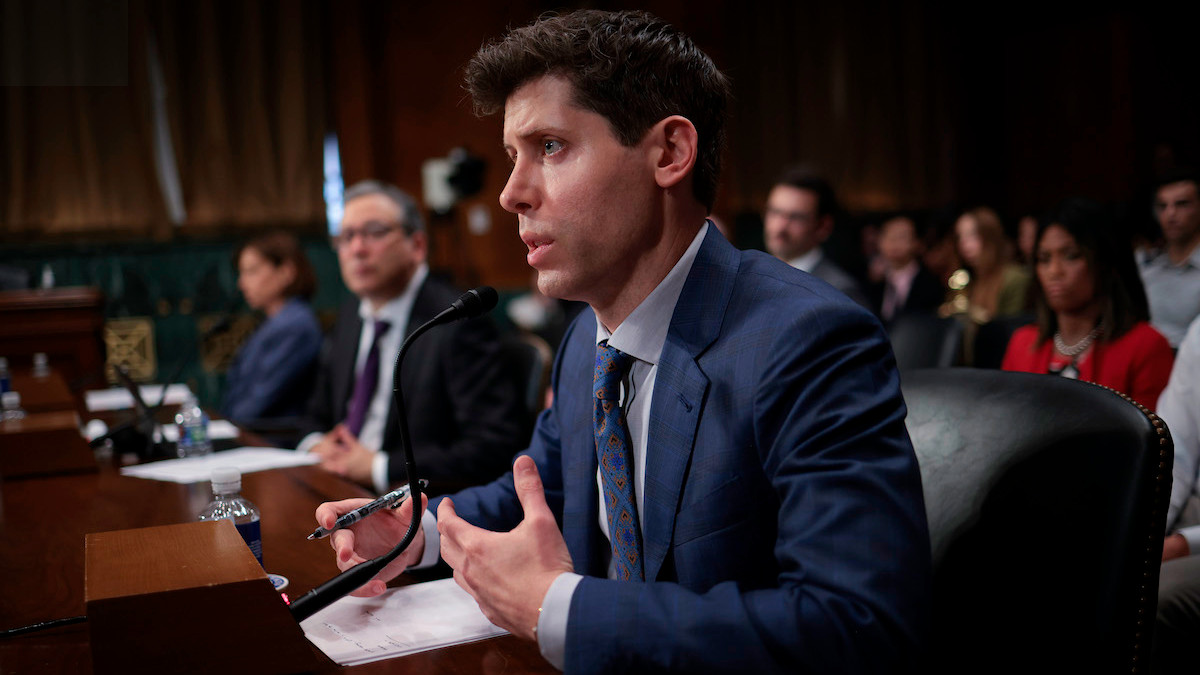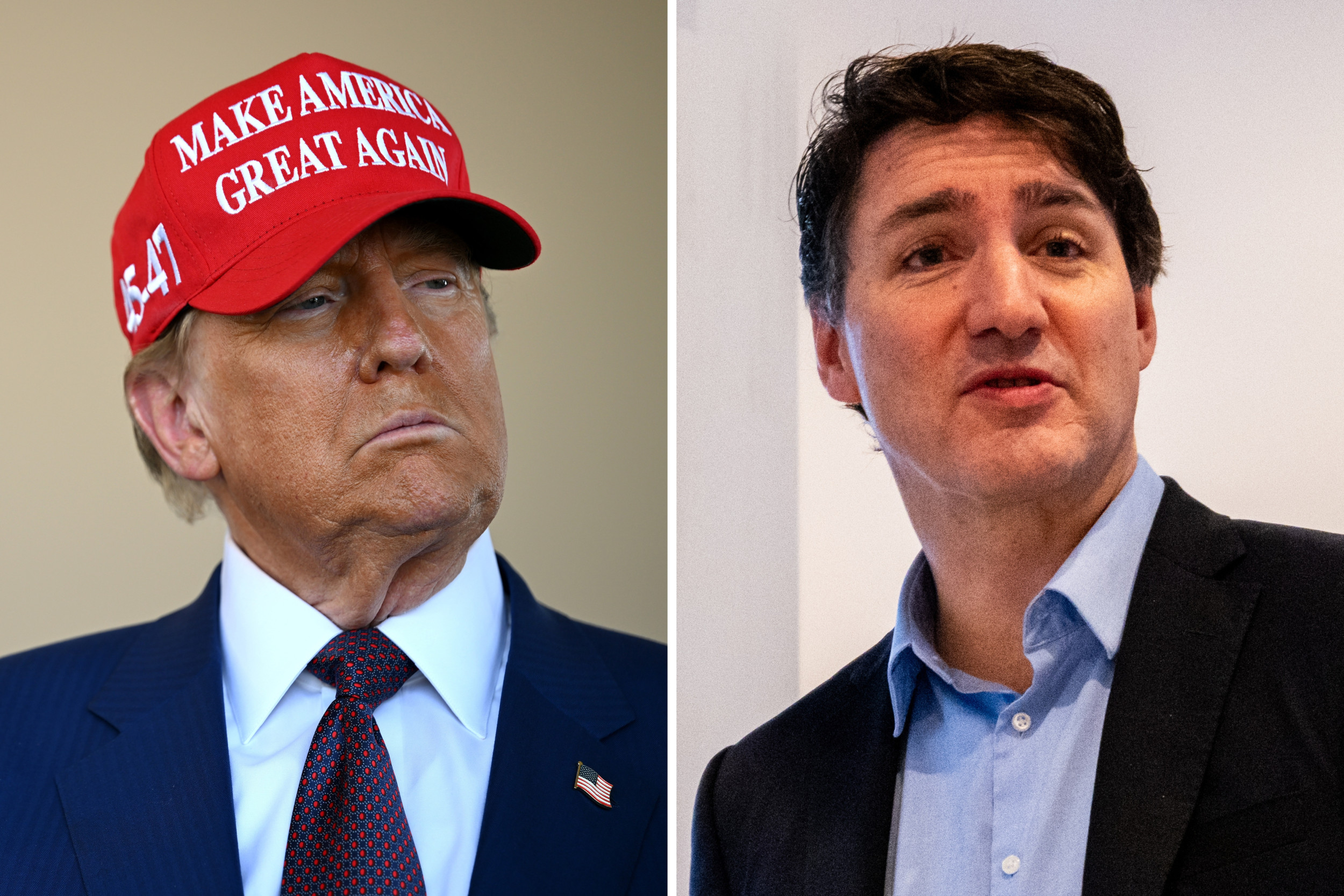ChatGPT And OpenAI: The FTC Investigation Explained

Table of Contents
The Federal Trade Commission (FTC) and its Mandate
The FTC is a powerful independent agency responsible for protecting consumers and promoting competition. Its authority stems from the Federal Trade Commission Act, particularly Section 5, which prohibits "unfair or deceptive acts or practices" in commerce. This broad mandate allows the FTC to investigate and take action against companies engaging in a wide range of potentially harmful activities. The FTC's power extends to imposing significant fines, issuing cease-and-desist orders, and requiring companies to implement corrective actions. In the context of AI, the FTC's focus is likely on ensuring that AI systems are developed and deployed responsibly, without causing undue harm to consumers. They are equipped to investigate and prosecute companies failing to comply with existing data privacy laws like COPPA (Children's Online Privacy Protection Act) and potentially GDPR (General Data Protection Regulation) for international data transfers.
Specific Allegations Against ChatGPT and OpenAI
The FTC investigation into OpenAI and its flagship product, ChatGPT, centers on several key areas of concern:
Data Privacy Concerns
ChatGPT collects vast amounts of user data, including personal information and conversational content. Allegations suggest concerns about:
- Insufficient transparency: OpenAI might not adequately inform users about the extent of data collection and its usage.
- Data security: Concerns exist about the security measures in place to protect user data from breaches and unauthorized access.
- Compliance with data privacy regulations: The FTC is likely examining OpenAI's compliance with existing laws such as COPPA and GDPR, particularly concerning the handling of children's data and the transfer of data across international borders.
Deceptive or Unfair Trade Practices
Allegations suggest that OpenAI may have made misleading statements about ChatGPT's capabilities and limitations. Specifically:
- Overstated accuracy: Claims about ChatGPT's accuracy might be overly optimistic, potentially leading users to rely on inaccurate information.
- Unacknowledged biases: The potential for biases embedded within ChatGPT's algorithms has raised concerns about deceptive or unfair practices. The model might perpetuate existing societal biases, leading to discriminatory outcomes.
- Lack of disclosure about limitations: Insufficient disclosure regarding ChatGPT's limitations and potential for misuse could be considered deceptive.
Potential for Bias and Discrimination
ChatGPT's algorithms are trained on massive datasets, which may reflect and amplify existing societal biases. This could lead to:
- Unfair or discriminatory outputs: The model might generate biased or discriminatory responses, perpetuating harmful stereotypes.
- Unequal access to benefits: The way ChatGPT is designed and used could create unequal access to its benefits based on factors like race, gender, or socioeconomic status.
- Lack of accountability: The opacity of the algorithms makes it challenging to identify and rectify biases, leading to a lack of accountability.
Potential Outcomes of the FTC Investigation
Several potential outcomes could arise from the FTC investigation:
Consent Decrees
The FTC might negotiate a consent decree with OpenAI, requiring the company to change its practices and implement improved data security measures, transparency initiatives, and bias mitigation strategies.
Fines and Penalties
If the FTC finds OpenAI violated the law, significant financial penalties could be imposed, potentially impacting the company's financial stability and future development plans.
Changes to ChatGPT's Development and Deployment
The investigation could lead to substantial changes in how ChatGPT is developed, used, and regulated. This might include modifications to data collection practices, algorithms, and user interfaces to enhance transparency, accountability, and fairness.
The Broader Implications for AI Development and Regulation
The ChatGPT and OpenAI FTC Investigation has far-reaching implications for the AI industry as a whole. It highlights the urgent need for responsible AI development and deployment, emphasizing the importance of:
- Data privacy protection: Robust data privacy measures are crucial to prevent misuse and protect user rights.
- Algorithmic transparency and accountability: Greater transparency in AI algorithms and mechanisms for holding developers accountable are essential.
- Bias mitigation: Strategies for identifying and mitigating biases in AI systems are critical for ensuring fairness and equity.
- Robust regulatory frameworks: Clear and comprehensive regulatory frameworks are needed to guide the development and deployment of AI responsibly.
Conclusion: The Future of ChatGPT and OpenAI After the FTC Investigation
The ChatGPT and OpenAI FTC Investigation underscores the critical importance of responsible AI development and the need for stronger regulatory oversight. The potential outcomes, including consent decrees, fines, and changes to ChatGPT’s development, will significantly shape the future of AI. Addressing concerns related to data privacy, deceptive practices, and algorithmic bias is not merely about compliance; it's about ensuring that AI technologies benefit society as a whole. Stay updated on the developments of the ChatGPT and OpenAI FTC investigation to understand the evolving landscape of AI regulation and the emergence of crucial discussions around AI ethics and responsible AI.

Featured Posts
-
 Clases De Boxeo En Edomex Inscribete En 3 Dias
Apr 30, 2025
Clases De Boxeo En Edomex Inscribete En 3 Dias
Apr 30, 2025 -
 Zwierzeta Bezdomne Dzien 4 Kwietnia I Jak Go Uczcic
Apr 30, 2025
Zwierzeta Bezdomne Dzien 4 Kwietnia I Jak Go Uczcic
Apr 30, 2025 -
 Processo Becciu Ultime Notizie Sui Fondi 8xmille
Apr 30, 2025
Processo Becciu Ultime Notizie Sui Fondi 8xmille
Apr 30, 2025 -
 Trumps 51st State Remarks A Political Strategy
Apr 30, 2025
Trumps 51st State Remarks A Political Strategy
Apr 30, 2025 -
 Exploring The Relationship Between Blue Ivy Carter And Tina Knowles Eyebrow Style
Apr 30, 2025
Exploring The Relationship Between Blue Ivy Carter And Tina Knowles Eyebrow Style
Apr 30, 2025
